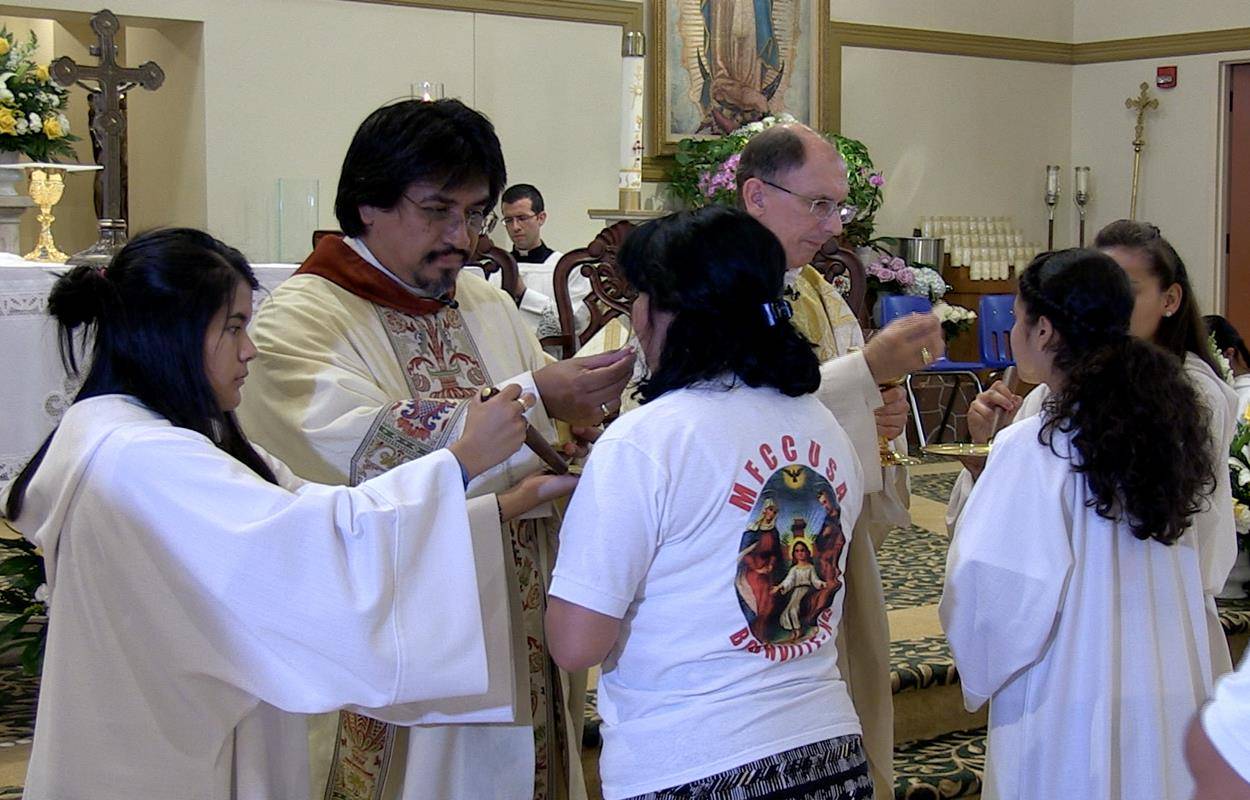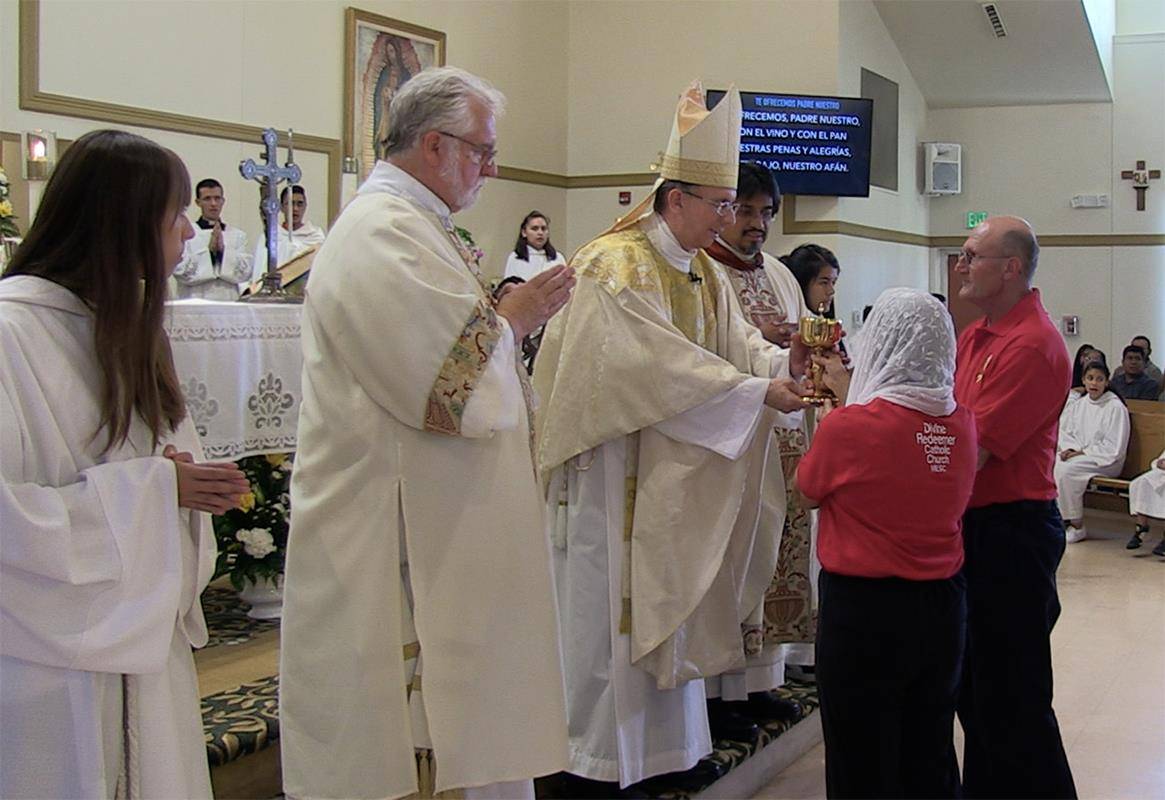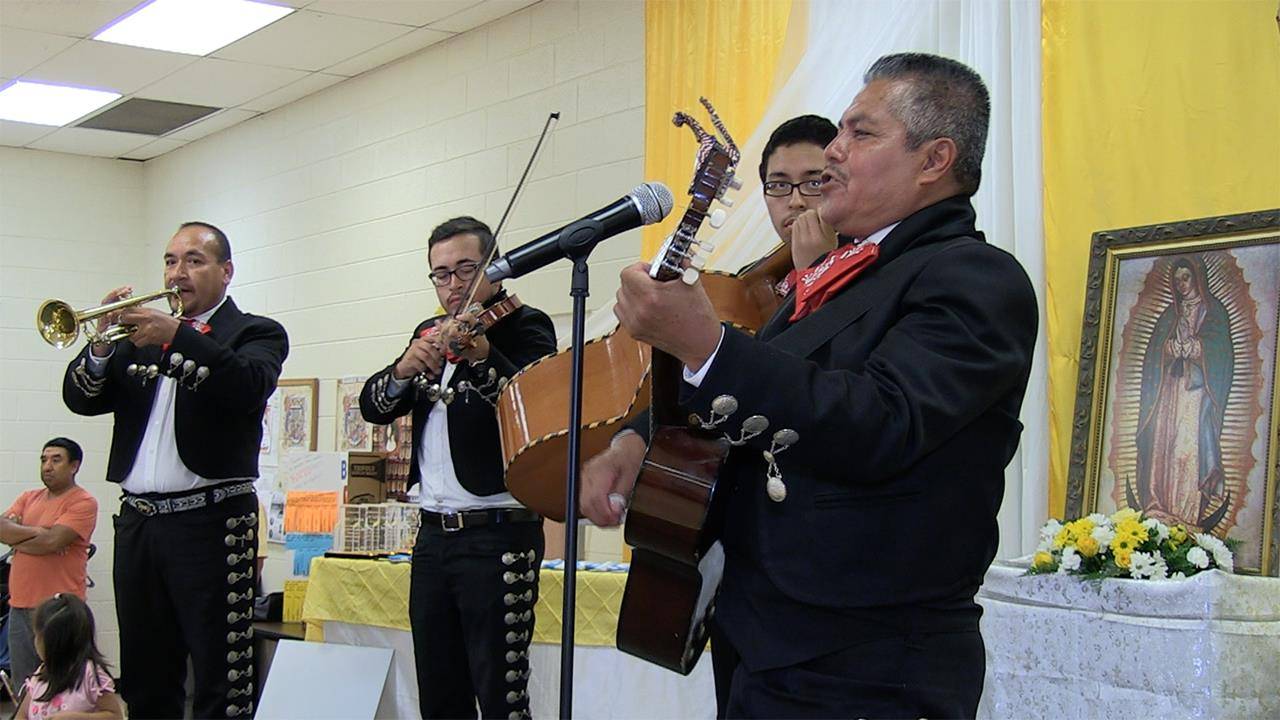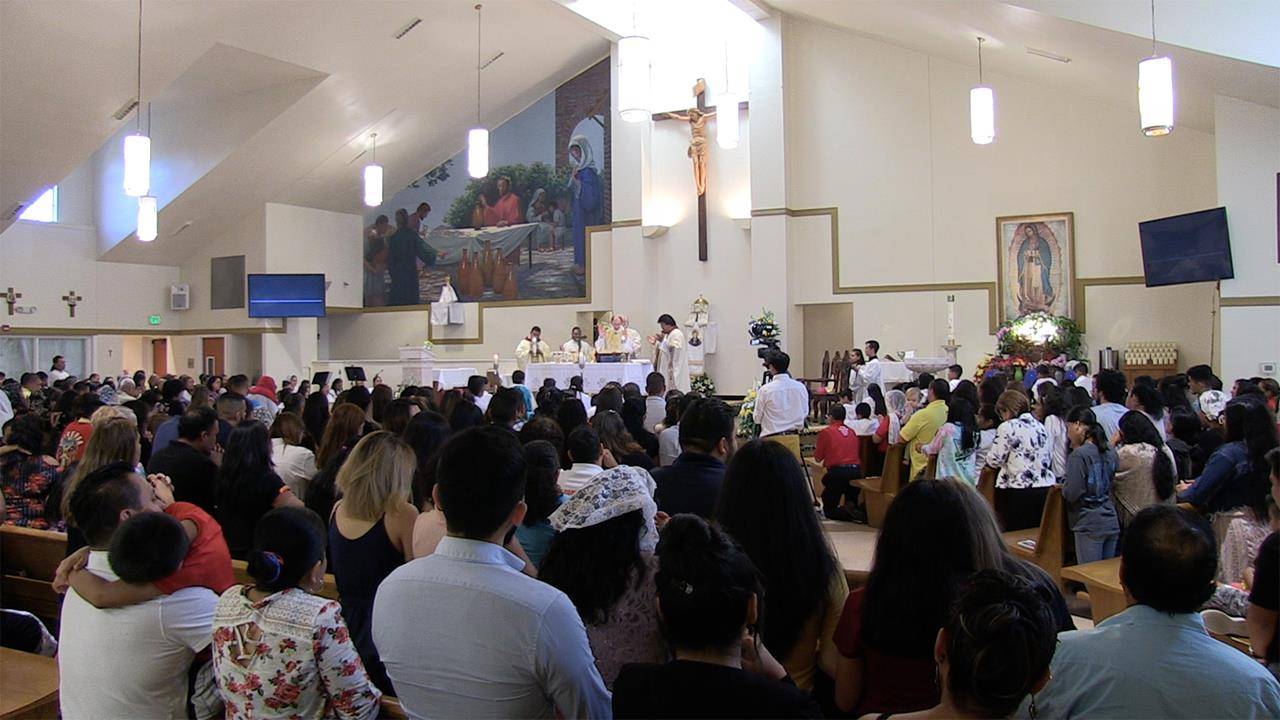‘Jubilant praises’
Divine Redeemer Church celebrates 15th anniversary of dedication
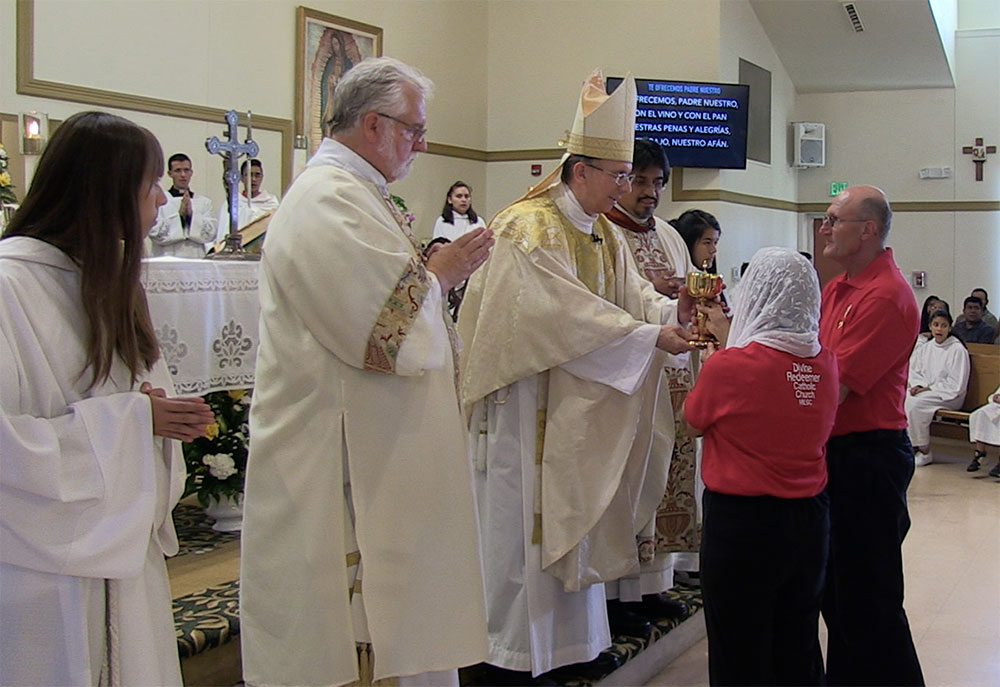
BOONVILLE — Members of Divine Redeemer Parish celebrated the 15th anniversary of the dedication of their church Aug. 15 with the bishop who originally consecrated it: Bishop Peter Jugis.
Divine Redeemer was one of the first churches Bishop Jugis dedicated after being installed as the fourth Bishop of Charlotte. Fifteen years later, he returned to the church and recalled the words he had prayed during the dedication Mass – worshiping the Lord “with jubilant praises” and asking Him to sanctify the church so that it could be used for the celebration of the Holy Sacrifice of the Mass, in which the people could in turn be sanctified through the reception of the sacraments.
Bishop Jugis noted, “How good it is to return today to celebrate, on the solemnity of our Blessed Mother Mary, to this house of prayer, the church of the Divine Redeemer, where the love of God has been celebrated for 15 years and the love of God is still present today through the presence of Jesus Christ in the Holy Mass.”
“Jubilant praises,” he said, referring to the prayer of dedication, are what he heard at the church’s dedication 15 years ago and what he heard again that day. “Jubilant praises, with the whole community singing jubilant praises to God.”
“May God increase in us His love that we celebrate here because, as St. John Paul II has said, opening one’s heart to the love of God also opens us to love our brothers, and we grow as a Christian community of faith, holiness and love,” he said.
Bishop Jugis concelebrated the Mass with Father Enrique González, pastor; Father Fidel Melo, vicar of Hispanic Ministry; and Father Eulogio Álvarez. Deacon Michael Langsdorf assisted and seminarian Camilo Salas-Bowen also served.
After Communion, Father González led the congregation in praying, in Spanish and in English, a prayer of thanksgiving expressing gratitude to God for His blessings over the 15 years parishioners have “lived together as family.”
After Mass parishioners enjoyed a traditional Mexican potluck called a “compartir,” with the festivities seasoned with Mariachi music.
For Jaime Ruiz, one of the oldest parishioners at the parish, the community has grown tremendously over the years. “We started with eight people and now we are a very large community, thank God and our Blessed Mother.”
Juana Silva de Rodríguez, another founding member of the parish, said the community grew due to the interest of parishioners like her who were “calling families one by one to integrate.”
Divine Redeemer Church’s roots run deep in Yadkin County. In the 1980s, a significant number of Hispanics arrived in the area, northwest of Winston-Salem, as migrants working in the tobacco industry.
They were predominately Catholic, and the Diocese of Charlotte responded by establishing a migrant ministry, eventually named Cristo Rey (“Christ the King”), in Yadkinville in the summer of 1982 to serve families in Yadkin and south Surry counties. The four Catholic parishes of Winston-Salem – Our Lady of Mercy, St. Leo the Great, St. Benedict the Moor and Our Lady of Fatima – founded the ministry in a joint effort.
In 1985, La Iglesia del Sagrado Corazon de Jesus (“Sacred Heart of Jesus Church”) was established 20 miles north in Dobson. The local community converted a former housing facility for migrant workers into a church. Although the structure had no running water and relied on kerosene heater for warmth, it was utilized as the church for eight years.
Father Joseph Waters, a pioneer in ministry to Hispanics in the diocese, was appointed director of diocesan migrant ministry in 1982. He led a search for Spanish-speaking priests to celebrate Mass for the Hispanic communities in the western Piedmont.
By 1986, the growth of Hispanic Catholics in the area prompted the diocese to buy a former hardware store just south of Yadkinville to provide a permanent pastoral center.
Father Joseph Mack, then-pastor of St. Joseph Church in Asheboro, celebrated the first Mass in the hardware-store church in 1990. In December then-Bishop John Donoghue blessed the facility, giving it the name Cristo Rey (“Christ the King”).
The number of migrant families permanently settling the Yadkinville area continued to rise, and by 1995, Sunday Mass attendance was so high that some worshipers were forced to stand outside.
A second location was found south of Dobson and the building was converted into a church in 1994. Soon, the Hispanic population outgrew both the Sagrado Corazon de Jesus and Cristo Rey facilities.
Both communities launched a plan to unite and build a new church between the two existing centers of worship for all of Yadkin County’s Catholics.
Twenty acres were purchased in Boonville, at the midpoint between Dobson and Yadkinville, and in 2003 an 18,000-square-foot, $1.5 million building was constructed to serve as a worship, educational and gathering space. Named “Divino Redentor” (“Divine Redeemer”), the church features traditional Mexican architecture, stucco and a red tile roof to pay homage to the heritage of the founding Catholics of the community. The sanctuary’s crucifix and altar were also crafted in Mexico.
Father Melo, among the first native Spanish-speaking priests to serve the community, said the church was designed so that parishioners, mostly who emigrated from Mexico, can feel at home.
“We have a great responsibility to make felt the strong presence of the Catholic Church, especially by demonstrating our identity as Christian Catholics,” he noted.
— César Hurtado, Reportero hispano



